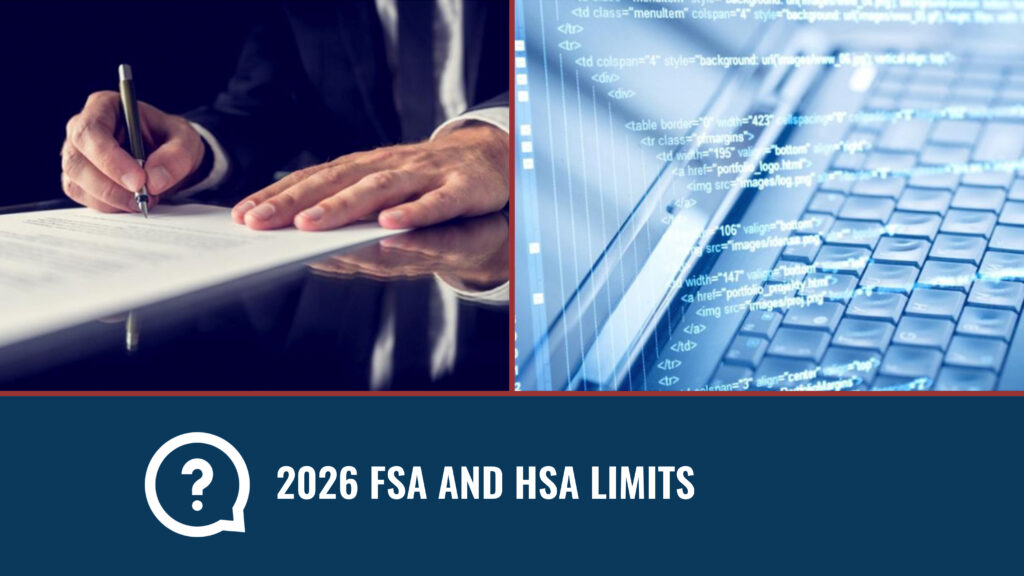Q: Did the Internal Revenue Service release the 2026 Health Flexible Spending Accounts and what are the 2026 limits for Dependent Care Accounts and Health Savings Account?
A: The Internal Revenue Service (IRS) has released the updated limits for Health Flexible Spending Accounts and what are the 2026 limits for Dependent Care Accounts and Health Savings Accounts.
2026 Health Flexible Spending Accounts (FSA)
The IRS released the 2026 Health FSA limits on October 9, 2026. For plan years starting on or after January 1, 2026, the limits are as follows:
- Maximum employee contribution: $3,400.
- Rollover for unused funds: $680.
Employers may set a lower limit than the IRS maximum. FSAs allow employees to set aside pre-tax money for eligible expenses not covered by insurance (e.g., deductibles, copayments, prescriptions, dental, vision, medical equipment and more. For a full list of eligible expenses, employees should consult their FSA Administrator). Unused funds are forfeited at the end of the plan year except for any rollover amount adopted.
2026 Health Savings Account (HSA) Limits
For calendar year 1, 2026 the limits are as follows:
- Individual coverage: $4,400
- Family Coverage (including employee plus spouse and employee plus child(ren)): $8,750
- Catch-up contribution (age 50+): $1,000 (unchanged).
As a reminder, to be eligible for an HSA, the employee must be enrolled in a Qualified High Deductible Health Plan. The IRS does not allow enrollment in both an HSA and general FSA simultaneously. The IRS does allow a limited FSA and HSA. Employees who have a spouse enrolled in a general flexible spending account through the spouse’s employer are ineligible for HSA contributions unless the spouse’s plan allows the omission of dependents. HSA contributions rollover year to year and are portable if the employee terminates employment.
When an employer makes a pre-tax contribution to an employee’s HSA, the employer should have a reasonable belief that the contribution will be excluded from the employee’s income. However, the employee—not the employer—is responsible for determining eligibility for HSA contributions. IRS Notice 2004-50 states that an employer is only responsible for determining whether the employee is covered under an HDHP or any low-deductible health plan sponsored by the employer, including health flexible spending accounts (FSAs) and health reimbursement arrangements (HRAs).
Dependent Care Accounts (DCA)
The “One, Big Beautiful Bill” signed into law on July 4, 2025, increased the annual DCA limit to $7,500. This limit is a calendar year regardless of the employer’s plan year. DCAs allow employees to defer pre-tax money for care of qualifying individuals defined as dependent child under age 13, spouse or dependent incapable of self-care, and dependent individual living with the taxpayer for more than half the year.
Employer Resources
Using Dependent Care FSAs – What Expenses Can Be Reimbursed?




